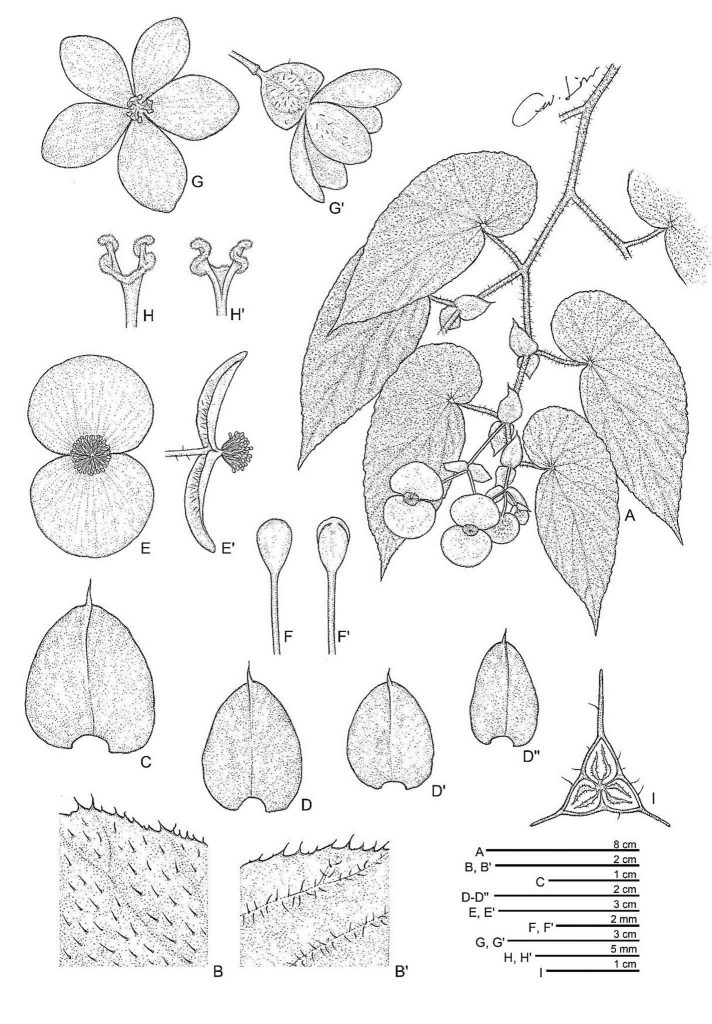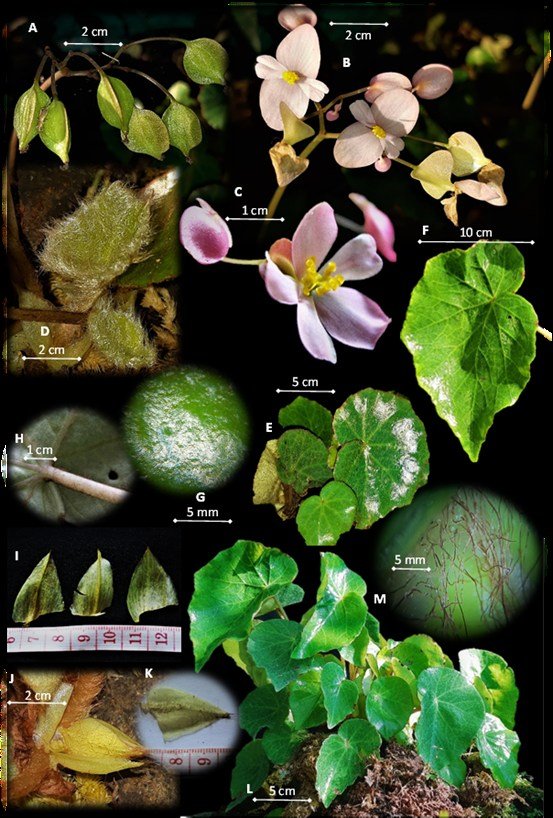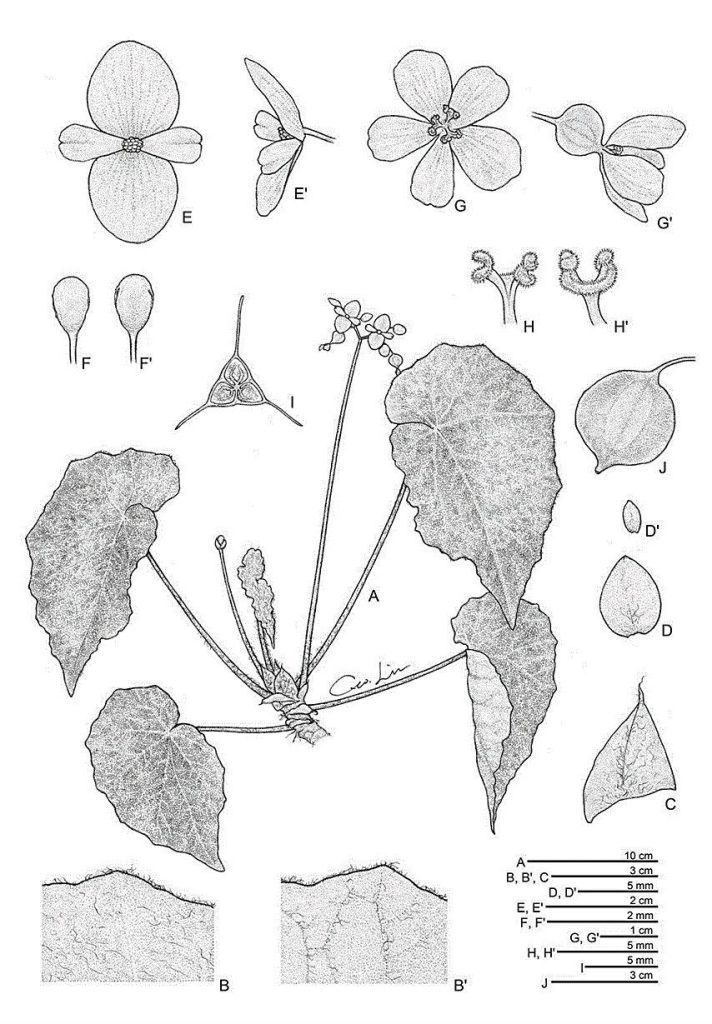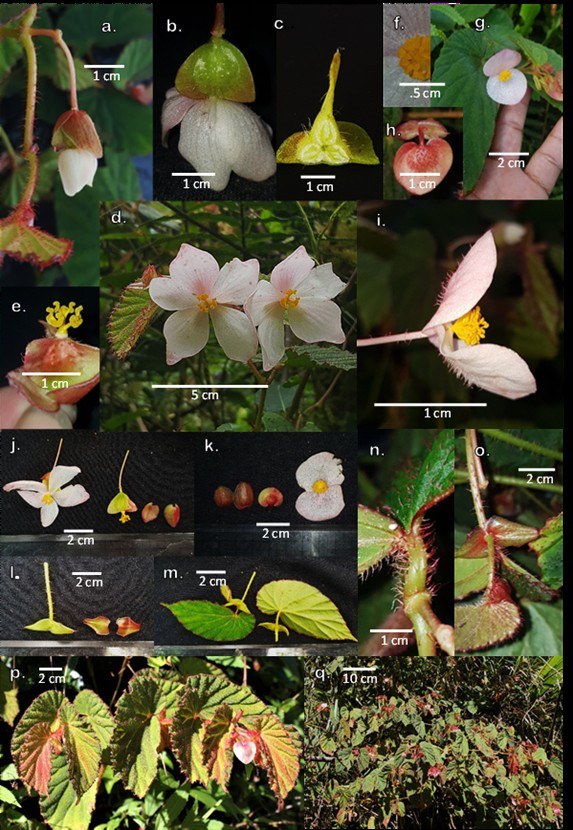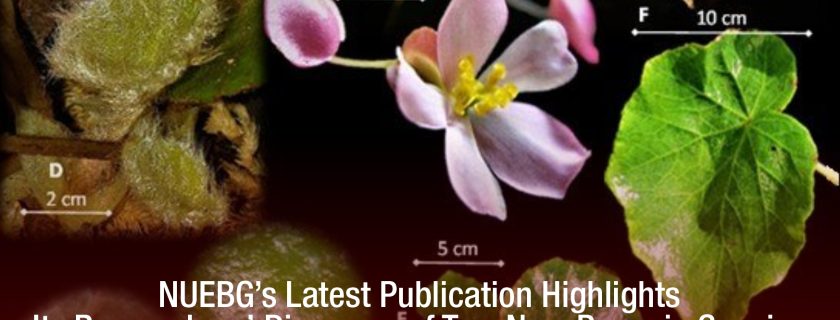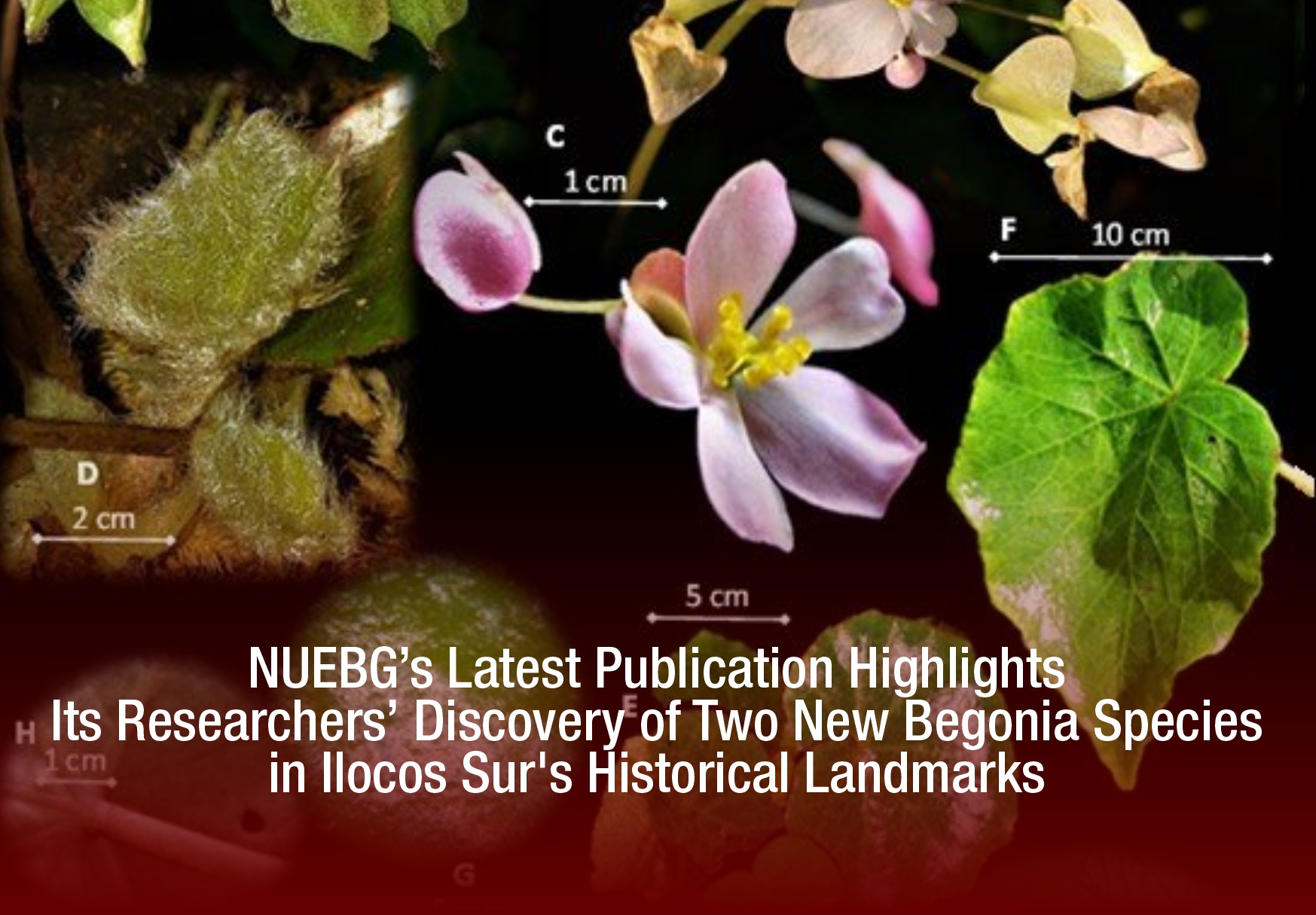NUEBG’s Latest Publication Highlights Its Researchers’ Discovery of Two New Begonia Species in Ilocos Sur’s Historical Landmarks
The Northwestern University Ecological Park & Botanic Gardens (NUEBG) has been a leading biological diversity research unit in the northern Philippines since its inception in 2007. The NUEBG is under the Northwestern University Center for Biodiversity Conservation, Restoration Ecology, & Environmental Concerns (CBCREEC), a unit of the Office of the President that is tasked with conserving the natural heritage of the Ilocos Region.
The biodiversity team at the NUEBG has published 9 other new discoveries, as well as country records for plant diversity and avifaunal species in Northwestern Luzon. With its wide scope of conservation initiatives, from the Northern point of Ilocos Region to the Zambales mountain range, the team has accumulated over 22,000 botanical specimens to date. These specimens are preserved in the NUEBG’s herbarium, The Herbarium of the Northwestern Luzon, Philippines, with the international code (HNUL). The NUEBG also has a living collection in its conservatories, which includes an astounding variety of plants, from the 227 families of the kingdom plantae to about 3000 species.
The NUEBG’s latest publication is the result of a collaborative effort between the DENR and collaborating experts in the field of plant taxonomy. The curator of the NUEBG & HNUL led the project.
In 2017, the team discovered two new species of Begonia in Ilocos Sur province, Philippines: Begonia tiradpassensis Calaramo et al., Sp. Nov., and Begonia bessangpassensis Calaramo et al., Sp. Nov. The discovery was made in collaboration with the DENR Biodiversity Monitoring personnel of CENRO Tagudin.
After meticulous peer reviews that lasted 3 years by world experts in Begonia, the species finally received their scientific names. They are dedicated to the historical war landmarks: The Battle of Tirad Pass and the Battle of Bessang Pass. These battles were fought in the area, and the Japanese imperial forces under Gen. Tomoyuki Yamashita were known to have strongholds there. Yamashita was known as the “Tiger of Malaya” and the conqueror of Singapore. He eventually surrendered in September of 1945.
The beautiful Begonia spp. are also dedicated to the United States Army Forces and Filipino Guerillas in the Northern Luzon who fought during the war. The authors hope that this publication will create awareness on the protection of the landmark as well as the conservation of its biological diversity, which are endemic to the area and rare and can’t be found elsewhere in the world.
The authors, Michael Calaramo, curator of the NUEBG & HNUL, Dr. Rosario Rubite, a Begonia expert from the University of the Philippines Manila, and Che-Wei Lin, a Botanical Illustrator from the Taiwan Forestry and Research Institute, also called for more protection for the Tirad Pass Protected Area and the Bessang Pass Natural Monument/Landmark as areas with “high ecological importance and priority for biodiversity conservation.”
